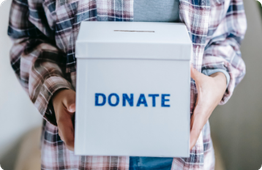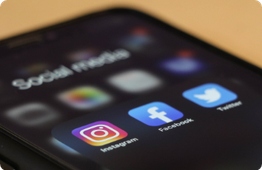Live well with Pain have a comprehensive programme for Carers
https://livewellwithpain.co.uk/resources-for-people-with-pain/ten-footsteps-for-carers/
A Carer’s Story
"In the beginning it was all a great shock and totally unexpected. I was in a busy second career spending a lot of time away from home in a well-rewarded and demanding role as a consultant. There was a sudden halt when my wife had a major stroke and was hospitalised for 3 months. In a few hours she was left, initially, unable to speak or read, or really move much. She had always been very busy, in the Community, with our home and with family – although we had no children - and friends, and almost everything changed.
After 3 months of therapy and treatment progress was being made. The day she was discharged she could complete the alphabet but still struggled with numbers. She was largely wheelchair bound and some physiotherapists had suggested she was unlikely to make further progress. With determination she proved them wrong. Support was good in some areas such as the Stroke Consultant and by our GP. The promised Physiotherapists were not really available and we hired assistance privately. I took on a whole host of tasks that I did not regularly perform from becoming the only driver, through cook, banker, house manager and entertainment co-ordinator. With no children, and no nearby relatives, if something needed to be done I did it.
My wife’s speech was improving but she had short-term memory problems. The Atrial Fibrillation that had caused the Stroke was fully documented and treated as were the other issues that were linked to the Stroke including Type 2 Diabetes and a change in her Hypothyroidism. What most affected her was the incessant Neuropathic Pain that covered the whole of her right side from the top of her head to the sole of her right foot. As a result she endures a lot and often apologises for being “Grumpy”. After a while, and following the excellent after-care from the Stroke Consultants, she was referred to a Pain Clinic. Various methods were used to try to help ranging for psychiatric advice and mindfulness to Lidocaine Infusions.
With a paucity of NHS Physiotherapy we paid for private assistance from a suitably qualified personal trainer which helped a great deal and also gave focus to my Wife’s improvement. As she has always been keen on research and statistics she investigated options for herself. She finds operating some simple things like mobile phones and computer tablets - and the mouse - incredibly frustrating as she was right-handed previously. She knows that her short-term memory is fallible and cannot readily recall numbers especially if she is tired.
More generally we attempt to do as much as we can. Regrettably the Stroke affected her lateral vision and so she cannot drive. This is really limiting and a source of annoyance on some occasions. We try to use as many things as we sensibly can to achieve this. We have a mobility scooter and an electric wheelchair which help when there are any significant distances to be covered or time has to be spent otherwise standing. We make use of the mobility assistance at Airports and we have used the assistance for trains. But travel using Public Transport is not easy and we are not readily able to use large parts of the Underground in London.
We have to plan better and make suitable time allowances. The constant pain, yet lack of sensitivity on her right side, make it unpleasant for my wife to be seated close by someone else as she may involuntarily move or suddenly react to a touch. All of this needs us to plan well and get such assistance as we can. My advice to others is to keep going for as long as one sensibly can. Be aware that the Pain is something that can neither be quantified nor even assessed easily. We all have different thresholds of pain and some of us are both more stoic than others and can endure pain better. Treatments that help are being worked on and we want to assist with that work.
It strengthens our relationship in many ways although my Wife has days when her tiredness and pain almost block out any positive thoughts. Distraction is important and keeping occupied and concentrating on a task, programme, music or theatre is often helpful. There are days of regret that she had a stroke and that the Stroke caused such damage. Apart from all the limitations on movement, recall and especially her inability to drive – so curtailing her independence – the constant neuropathic pain is probably the one thing that has the biggest effect on her life and so on our life together. The fact that we have no children and have no relatives living near us is also a challenge but friends and activities such as travel, eating out, theatre and cinema do help as distractions to enable my Wife to cope better with her pain and reduce the part that I have to play."





